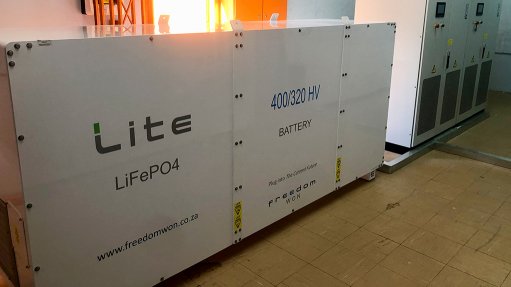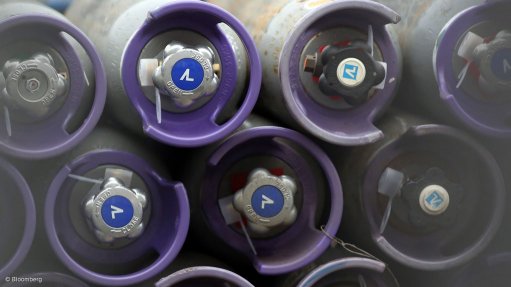The business case for captive renewable energy plants in Africa
By Theuns Ehlers
Renewable energy has journeyed from the subsidised fringes of electricity supply to become an integral part of the power landscape, particularly across Africa, where it has the potential to provide millions of citizens and businesses with access to a cleaner, more affordable, easily deployable and rapidly scalable source of power.
A key driver of this journey has been a notable reduction in technology costs, thanks to increased economies of scale, more competitive supply chains and technology improvements. In no technology are the results more pronounced than in solar photovoltaic (PV). Globally, the average silicon solar module spot price declined more than fivefold from about $1.8/W in 2011 to about $0.36/W at the end of 2016. In South Africa, the cost of utility-scale solar PV projects has plummeted from more than R3.50/kWh to around R0.60/kWh in the space of four years. The net result is that renewable-energy projects, be they for utility or corporate offtake, no longer require subsidies to compete against traditional baseload power.
Realising this, developers of utility-scale energy projects have been capitalising, and continue to capitalise, on these cost reduction benefits, with many African solar PV and wind project tariffs bid at significantly better rates than the current new-build baseload power tariffs of about US10c/kWh.
Notwithstanding the significant advances made in the utility sphere, the expectation is that projects with corporate offtakes stand to benefit the most from these cost reductions. Whereas, in the past, most corporate projects were implemented at a premium to grid tariffs and linked to broader corporate social investment or ‘green’ initiatives, these projects are now positively contributing to a company’s bottom line.
Thus, companies are looking to renewable-energy solutions to provide energy savings through a discounted tariff and a reduction in utility maximum demand; energy price-path certainty, as corporate offtake tariffs are typically fixed or indexed to inflation, reducing exposure to the higher-than-inflation increases typical of most utilities; improved energy security for businesses in remote or grid-poor areas through on-site access to alternative energy sources; an enhanced reputation and brand by meeting the sustainability expectations of customers, investors and other stakeholders; a reduction in harmful emissions and avoidance of long-term carbon and environmental penalties; and a quick-to-deploy solution, as corporate projects do not have the same lengthy construction periods associated with larger utility projects. Depending on size, a small corporate solar PV plant generating less than 1 MW can be commissioned in a matter of weeks, while a medium-sized plant (less than 5MW) can be commissioned in under six months.
Consequently, with proven technology, short construction timelines and significant offtaker appetite confirmed, it appears that the biggest challenge facing these corporate projects is the availability of appropriate funding structures.
One might expect that, because these projects are smaller, they would be easier to finance. However, owing to their small size, as well as a lack of specific financial instruments and the high cost of structuring finance within traditional project finance parameters, the funding of these corporate projects is potentially more complex than the funding of traditional utility projects.
Additionally, corporate projects carry a different risk profile to that of a utility- backed project. With utility-backed projects, the utility’s obligations are typically backed by the host government. Corporate projects, on the other hand, involve corporate credit, which, in most cases, is weaker than that of the utility or the host government. Further, it is easier to take a longer-term view on the government or utility in question, while financial institutions generally have limitations in terms of funding tenors for corporates. The net effect of this is that it is difficult to secure long-dated finance for corporate projects, which is generally a prerequisite to realising tariffs that are competitive with those of utilities.
Nevertheless, promising steps have been taken by financial institutions to develop structures that mitigate this risk and support the development of a corporate energy projects market through:
• credit enhancements like buy-back provisions for certain contract termination scenarios, the involvement of development finance institutions and export credit agencies, which have a different risk appetite, supporting longer-tenor funding; portfolio financing, where credit payment risk is spread across a number of clients; mini-perm financing structures, where it is assumed that deals will be refinanced in the medium term; and insurance credit wraps; as well as
• standard form documentation to support swift implementation and lower transaction costs.
There are already some success stories in markets such as the US, where almost 10 GW of renewable-energy deals based on corporate offtakes have been signed. Africa has not seen deals on this scale yet, but corporates are increasingly recognising the value of these deals and the opportunities they hold. This includes a new market for equipment suppliers, engineering procurement and construction companies and operations and maintenance companies, as well as power project developers, who can realise profitable returns as equity investors in independent-power-producer-type structured corporate deals.
As financial services providers and power producers continue to collaborate to unlock effective and efficient funding mechanisms, corporate power generation will further improve, opportunities will become more widespread and solutions will become ever more innovative.
Ehlers is head of project finance at Barclays Africa
Comments
Press Office
Announcements
What's On
Subscribe to improve your user experience...
Option 1 (equivalent of R125 a month):
Receive a weekly copy of Creamer Media's Engineering News & Mining Weekly magazine
(print copy for those in South Africa and e-magazine for those outside of South Africa)
Receive daily email newsletters
Access to full search results
Access archive of magazine back copies
Access to Projects in Progress
Access to ONE Research Report of your choice in PDF format
Option 2 (equivalent of R375 a month):
All benefits from Option 1
PLUS
Access to Creamer Media's Research Channel Africa for ALL Research Reports, in PDF format, on various industrial and mining sectors
including Electricity; Water; Energy Transition; Hydrogen; Roads, Rail and Ports; Coal; Gold; Platinum; Battery Metals; etc.
Already a subscriber?
Forgotten your password?
Receive weekly copy of Creamer Media's Engineering News & Mining Weekly magazine (print copy for those in South Africa and e-magazine for those outside of South Africa)
➕
Recieve daily email newsletters
➕
Access to full search results
➕
Access archive of magazine back copies
➕
Access to Projects in Progress
➕
Access to ONE Research Report of your choice in PDF format
RESEARCH CHANNEL AFRICA
R4500 (equivalent of R375 a month)
SUBSCRIBEAll benefits from Option 1
➕
Access to Creamer Media's Research Channel Africa for ALL Research Reports on various industrial and mining sectors, in PDF format, including on:
Electricity
➕
Water
➕
Energy Transition
➕
Hydrogen
➕
Roads, Rail and Ports
➕
Coal
➕
Gold
➕
Platinum
➕
Battery Metals
➕
etc.
Receive all benefits from Option 1 or Option 2 delivered to numerous people at your company
➕
Multiple User names and Passwords for simultaneous log-ins
➕
Intranet integration access to all in your organisation


















